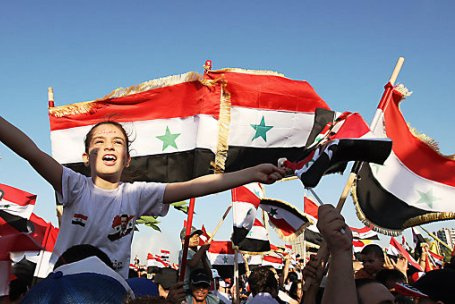The Loss and Gain Game of Neighbors with Assad

IRD: President Bashar al-Assad is going through a rough patch these days. The yesterday’s comrades have turned their back on Damascus and his Arabs brethren turn out to be more catholic than the Pope. While in Libya it was the West which took the initiative and imposed a no-fly zone to make it hard for Gaddafi, now it is the Arab countries stepping forward to take helm of the anti-Syrian diplomacy. From the outset, the Arab League came into Syrian game aggressively by setting deadlines for Syrians and suspending Damascus’ membership in the league, evidence of how the old hatred has flared up. Among the opponents of Bashar, the Saudis’ moves to intensify the situation against Syria had a history, but the position adopted by Turkey, the AKP in particular that has on its official agenda a policy of keeping clashes with neighbors at a minimum- has surprised many of the analysts. Unlike the Turks, the Iraqis have adopted a wiser position vis-a-vis Syria. Nouri al-Maliki, the Iraqi prime minister, made it clear in the US during his meeting with the American authorities that Baghdad did not wish to see the overthrow of Assad. IRD reviews Syria’s turbulent situation in an interview with Mohammad Farazmand:
IRD: What is your evaluation about the position adopted by the Syria’s neighbors regarding the latest developments in the country?
MF: As one may infer form the votes of the countries in the Arab League, the Arab World has a relatively consistent position regarding the developments in Syria. Eighteen out of 22 members of the Arab League have voted for the suspension of Damascus’ membership. The three countries that cast negative votes were Yemen (whose government shares the same plight as Syria), Lebanon (although it later announced that the vote did not reflect the government’s stance) and Iraq. Iraq may be the only Arab country which holds a different position due to its good relations with the Syrians long before the Arab Spring. Some Arab countries, such as Saudi Arabia wish to preserve the status quo, while the Persian Gulf Cooperation Council members, such as Qatar which has proved quite active in the Arab World developments and the Arab elite seek change.
IRD: Aren’t they holding contradictory positions on boycotting the country?
MF: The differences are more significant with regard to boycotting the country, since some of Syria’s neighbors such as Jordan will be economically damaged by financial sanctions. About 60 percent of Jordan’s imports are via Syria. Iraqis also have the same viewpoint, not lending themselves to observe the sanctions.
IRD: Among the neighbors, Turkey and Saudi Arabia have endorsed the opposition. How do you explain their stance?
MF: The Saudis have generally frowned upon any changes in the Arab World, but they welcome the unrest in Syria. In fact, Saudis are of the backstage orchestrator of all Arab moves against Syria. The Qatari PM and Foreign Minister Sheikh Hamad bin Jasim may have arranged the diplomatic sitting of the Arab League on Syria, but the consistent approach of eighteen Arab countries is due to Saudi Arabia’s offstage masterminding. Turkey clarified its position on Syria ahead of the Arab League and was one of the first countries that abandoned hopes for Assad’s regime. It adopted a harsher position compared to that of Arab countries and allowed the opposition to gather in Istanbul and organize its forces.
IRD: Turkey’s stance surprised many observers at first. How can we explain their policy towards Damascus?
MF: Every country taking a stance on the domestic affairs of another country faces two restrictions: first is regarding the relations between the citizens and the ruling system. When these relations are at the edge of excessive violence, some countries feel obliged to take a clear stance in support of the people, based on the internationally-accepted conventions. Turkey believes that such an event has occurred in Syria and the Syrian people should be supported. Regional interests and balance is another issue that requires attention. Ankara is trying to be a model for the future regimes of the Middle East and Arab countries. It also does not consider the Syrian developments different from those in Egypt, Tunisia and Libya. They endorsed the opposition in those countries too. In Egypt, Tunisia and Morocco, the parties affiliated with the Muslim Brotherhood secured the majority of votes. Considering AKP’s close relations with the Brotherhood, its support for the Arab Spring developments is not surprising.

